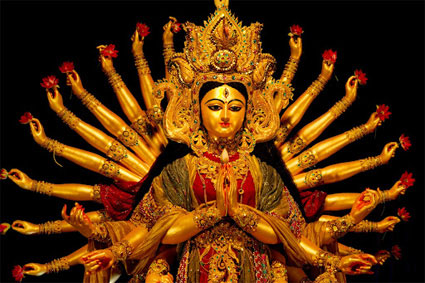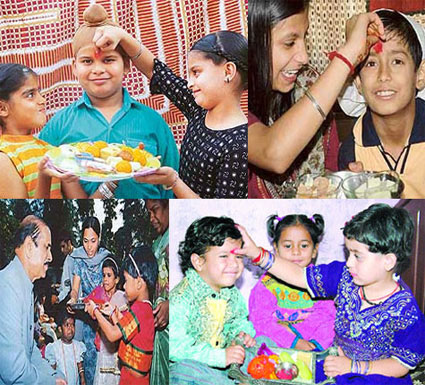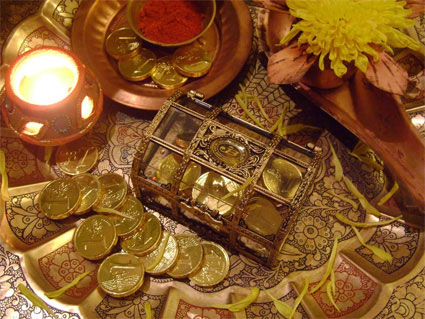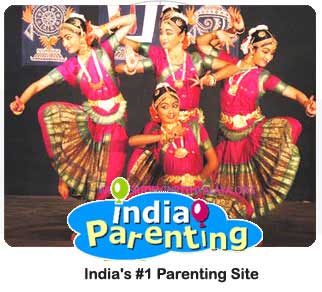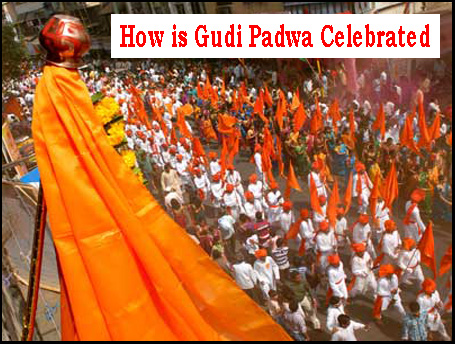 Gudi Padwa is a Hindu festival that marks the beginning of New Year according to Hindu calendar. The early morning rituals just before sunrise have a specific significance, read on.
Gudi Padwa is a Hindu festival that marks the beginning of New Year according to Hindu calendar. The early morning rituals just before sunrise have a specific significance, read on. Gudi Padwa is celebrated to mark the beginning of the New Year according to the Hindu calendar. It is celebrated with different names in different parts of India.
Gudi Padwa is celebrated as New Year in Maharashtra. This day carries special significance for Hindus because it is believed that Lord Brahma created the Universe on this day. On this day people take bath early in the morning, decorate their doorways with Toran which shows that they are going to welcome God and guests in their home and they worship and hoist Gudi after that. The Gudi symbolizes advantages of the Prajapati waves in the Universe and this flag symbolizes victory also.
Facts and Significance of Gudi Padwa
Have a quick look at the facts and significance of Gudi Padwa.
- A number of stories are associated with the festival of Gudi Padwa and the most prominent one is the day when Lord Rama defeated King Ravana and returned to Ayodhya.
- Gudi Padwa is a symbolic function of love and devotion between wife and husband. Parents invite their newly married daughter with her husband on meal.
- Gudi Padwa is a festival celebrated with family. Any person can join the procession that is taken out the previous day of the festival when people lit diyas and float them in lakes by putting them on leaves.
- People worship Lord Brahma and Goddess Saraswati this day.
- In some areas it is signified as Chaitra Navratri during which devoted people keep fast and worship Lord Rama as well as Goddess Durga.
Significance of Worshipping Gudi
The Gudi is worshipped within 5 – 10 minute of sunrise. It is assumed that divine consciousness emanates during this time of sunrise and it gets stored in the body cells which are being used as and when required. Utmost care should be taken when raising the Gudi because it should be next to the main entrance of the house. The spot should be on the right side of the house when you face the house. The reason behind this is that right side symbolizes the active state of our soul.
Before raising the Gudi, the spot selected for it is cleaned and a Rangoli with Swastika is designed over there. Turmeric and vermillion is offered on the swastika for good sign. Gudi is the symbol of victory and it is raised to symbolize that God is victorious at every level of war. Rangoli is made around Gudi and at the entrance of house.
Reasons of Celebrating Gudi Padwa
Have a quick look the reasons for celebrating Gudi Padwa.
Natural
This is the time when spring commences and the Lord says that this season is his manifestation. The weather is also pleasant and exhilarating at this point of time. The trees that have shed their leaves by now are ready to bear new foliage and hence look fresh and energetic.
Mythological
Lord Rama is said to have returned to Ayodhya on this day after defeating King Ravana of Lanka.
Spiritual
- Lord Brahma created the Universe on this day. It is the day when Satyayug began and so Hindus celebrate New Year this day.
- Every moment of this day is auspicious and one does not have to look for the right moment to do any good thing in his life or to perform any ritual.
- During sunrise the divine consciousness is emitted which retains for longer time.
Gudi Padwa is joyous as well as a sacred occasion. The festival is celebrated in Maharashtra of victory and prosperity. People believe that hoisting Gudi wards off evil and attracts good luck and prosperity in the house.
Why is Gudi worshipped just before sunrise? Why is Gudi Padwa celebrated? How do you celebrate Gudi Padwa? Discuss here.











 Gudi Padwa is a Hindu festival that marks the beginning of New Year according to Hindu calendar. The early morning rituals just before sunrise have a specific significance, read on. Gudi Padwa is celebrated to mark the beginning of the New Year according to the Hindu calendar. It is celebrated with different names in different parts of India.
Gudi Padwa is a Hindu festival that marks the beginning of New Year according to Hindu calendar. The early morning rituals just before sunrise have a specific significance, read on. Gudi Padwa is celebrated to mark the beginning of the New Year according to the Hindu calendar. It is celebrated with different names in different parts of India. 



